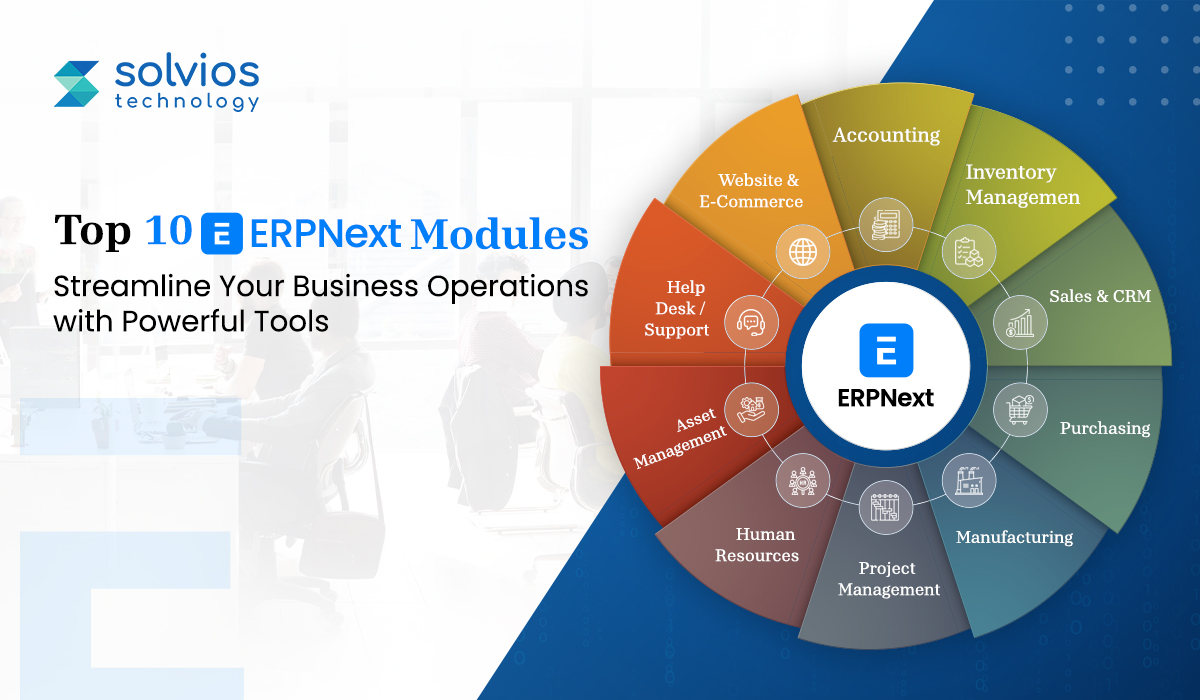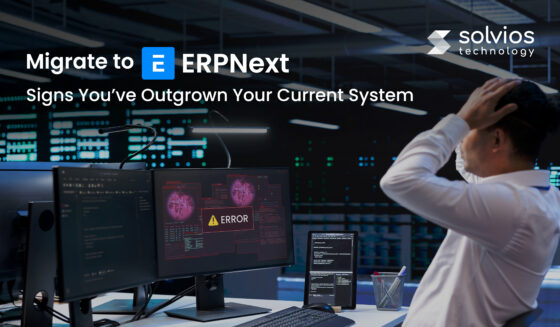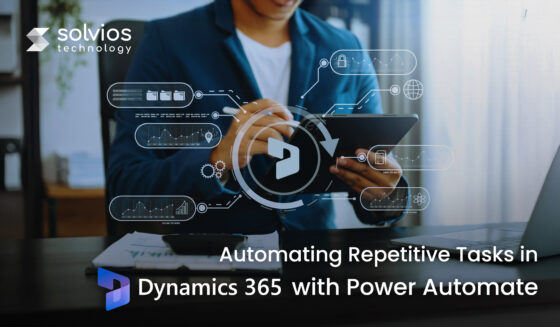
Introduction
Is your business struggling with disconnected systems and manual processes? The right ERPNext Modules can help you centralize operations, reduce errors, and automate tasks—without complex, expensive setups.
ERPNext is quietly reshaping how businesses manage their everyday operations. From manufacturers and distributors to service providers and nonprofits, an increasing number of organizations are adopting the ERPNext module to unify their workflows and bring every department onto the same page.
Why the sudden shift? Because traditional systems aren’t compatible with modern operations.
Business owners today are facing setbacks with:
- Disconnected software tools that don’t talk to each other
- Time-consuming manual reporting
- Inventory errors or duplicate data entries
- Limited visibility across sales, finance, and operations
That’s where ERPNext implementation comes in. It helps consolidate your business processes under one roof, with the flexibility to choose only the ERPNext modules you need.
Ready to build a system that works for you, not against you?
Read this blog as we explore the top 10 ERPNext modules to streamline your operations.
Additionally, if you’re already facing challenges, feel free to schedule a free consultation, and we’ll help you determine the proper ERPNext module setup for your needs.
Why ERPNext Modules are Ideal for Business Process Automation
Open-Source Power with Enterprise Flexibility
ERPNext stands out as an open-source ERP solution, enabling business owners to tailor the platform to suit their specific operations. Based on their unique requirements, businesses can tweak, extend, and integrate new features into their systems.
Customization That Matches Real-World Workflows
Unlike rigid legacy ERPs, ERPNext allows teams to:
- Create custom workflows for approvals, tasks, and alerts
- Customize forms, fields, and reports to match exact processes
- Set user permissions down to the field level for better control
Whether you’re automating purchase requests, invoicing, or HR onboarding, ERPNext helps you accomplish the task.
Built-In Integrations That Keep Systems Talking
ERPNext offers businesses the ability to leverage built-in integrations. It provides tools like payment gateways, email systems, and shipping providers to simplify everyday operations. Users also have the option to leverage RESTful APIs and webhooks for seamless integration with third-party services.
Automation Without the Heavy Price Tag
ERPNext offers a cost-effective solution for businesses looking to automate their workflows without the high implementation costs typically associated with enterprise platforms like SAP or Oracle. With minimal ERPNext implementation cost, companies can streamline operations without compromising on functionality
Bottom line?
ERPNext helps you automate smarter, faster, and without breaking the bank.
Want to simplify ERPNext with expert guidance at every step?
Contact us NowTop 10 ERPNext Modules to Streamline Business Operations
ERPNext’s modular design is what makes it one of the most flexible ERP platforms. Whether you’re a manufacturer, retailer, or service provider, here are some modules that can simplify your everyday operations with better visibility and control.
1. Accounting
The Accounting module in ERPNext provides you with complete control over your financials, offering real-time tracking and automated processes.
Key Features:
- General ledger and chart of accounts
- Automated invoicing and payment reminders
- Multi-currency support and tax rules
- Bank reconciliation and cash flow management
Use Case
A retail business can auto-generate invoices when sales orders are fulfilled and use real-time dashboards to track revenue and expenses across multiple stores.
Industries Benefited
Retail, professional services, hospitality, and wholesale.
2. Inventory Management
ERPNext provides advanced inventory control, enabling you to manage stock across multiple warehouses and sales channels with complete visibility.
Key Features
- Batch and serial number tracking
- Multi-warehouse management
- Stock transfers and reordering rules
- Barcode scanning and stock aging reports
Use Case
A logistics firm can monitor product movement between regional warehouses and optimize stock replenishment using automated alerts.
Industries Benefited
E-commerce, logistics, FMCG, and automotive.
3. Sales & CRM
Manage your sales pipeline from lead capture to final invoicing. The CRM system is fully integrated with ERP functions, making it a one-stop solution.
Key Features
- Lead and opportunity tracking
- Sales pipeline visualization
- Automated emails and follow-ups
- Quotation and order conversion
Use Case
A B2B SaaS company can track leads by region, set automated reminders for follow-ups, and close deals directly from the CRM dashboard.
Industries Benefited
Software, consulting, manufacturing, and education.
4. Purchasing
Streamline your supply chain with tools that help manage vendors, track purchase orders, and ensure accurate billing.
Key Features
- Supplier database and rating
- Request for Quotations (RFQs)
- Purchase order creation
- Invoice and payment reconciliation
Use Case
A manufacturing firm can automatically trigger PO creation based on minimum stock levels and streamline vendor payments via the accounting module.
Industries Benefited
Manufacturing, distribution, construction, and food processing.
5. Manufacturing
ERPNext supports complex manufacturing setups with tools to manage raw materials, production planning, and quality assurance.
Key Features
- Bill of Materials (BOM)
- Work Order Management
- Shop floor tracking
- Job card generation
Use Case
A custom furniture business can schedule and track production stages, ensure material availability, and accurately calculate job costs.
Industries Benefited
Furniture, electronics, apparel, and heavy machinery.
6. Project Management
Deliver on time with built-in tools to manage tasks, resources, and deadlines.
Key Features
- Gantt charts and Kanban boards
- Milestone tracking and time logs
- Expense tracking and billing
- Task dependency and resource allocation
Use Case
An IT services company can assign developers to projects, log their time on timesheets, and automatically generate invoices based on the hours worked.
Industries Benefited
IT & software, consulting, construction, and design agencies.
7. Human Resources
Automate and streamline HR processes from onboarding to offboarding.
Key Features
- Employee records and department-wise hierarchy
- Leave and attendance tracking
- Payroll and expense claims
- Recruitment pipeline and job postings
Use Case
An SME can simplify payroll processing for 100+ employees using automated salary slips, tax deductions, and leave integration.
Industries Benefited
Corporate offices, schools, hospitals, and call centers.
8. Asset Management
Track the lifecycle of your physical assets from purchase to depreciation and retirement.
Key Features
- Asset registration and location tracking
- Depreciation schedules
- Maintenance logs and service history
- Asset value reporting
Use Case
A construction company can manage machinery across multiple project sites, with automated depreciation and repair reminders.
Industries Benefited
Construction, logistics, education, and healthcare.
9. Help Desk / Support
Keep customers happy with a built-in support system that tracks issues and ensures timely resolutions.
Key Features
- Ticketing with priority and SLA tags
- Customer portal integration
- Knowledge base management
- Auto-assignment and escalation matrix
Use Case
A B2C electronics company can manage customer complaints, assign support tickets, and view performance metrics on resolution times.
Industries Benefited
E-commerce, IT, telecom, and consumer goods
10. Website & E-Commerce
ERPNext comes with a native CMS and shopping cart, eliminating the need for separate platforms for online sales and marketing.
Key Features
- Product catalog with variants and images
- Shopping cart and checkout flows
- Payment gateway integrations
- Built-in SEO tools
Use Case
A D2C brand can launch a fully integrated e-commerce store with real-time stock tracking, customer records, and order fulfillment, all from a single system.
Industries Benefited
Retail, fashion, electronics, and wellness.
How to Choose the Right ERPNext Modules for Your Business
1. Start with Your Business Model
Before integrating the ERPNext module into your workflow, it is essential to understand your operations. A retail company will require substantial inventory and POS modules, while a services firm should focus on Project Management, CRM, and HR. Select what suits your workflow.
2. Identify Bottlenecks and Inefficiencies
Are your teams struggling with manual invoicing, stockouts, or disconnected tools? Let those issues guide your starting point. If your finance team is spending too much time reconciling transactions, Accounting and Purchasing are a natural place to begin.
3. Align with Growth Goals
Planning to scale into eCommerce? Don’t just think about Inventory, consider Website, CRM, and Help Desk modules. Preparing for rapid hiring? HR and Payroll modules will become critical.
4. Consider Integration Requirements
If you already use third-party tools (like Shopify, QuickBooks, or Slack), focus on ERPNext modules that either integrate easily or consolidate those functions within ERPNext itself.
5. Start Small, Scale Smart
There’s no need to go “all in” on day one. Start with 2–3 core ERPNext modules and expand based on real usage and feedback.
6. Get Expert Guidance
Not sure where to begin? That’s where we come in. Explore our complete ERPNext guide for businesses and discover how to streamline your operations with ease and efficiency.
Need help with ERPNext setup or customization?
Contact us NowConclusion
ERPNext’s modular architecture isn’t just convenient, it’s a decisive advantage for growing businesses. Instead of being locked into a rigid system, you can choose exactly what you need, when you need it.
Whether you’re automating finance, improving customer relationships, or optimizing inventory, there’s a module (or several) that can do the heavy lifting. The key is knowing where to start and how to scale without overwhelming your team.
Need help evaluating, implementing, or customizing ERPNext for your business?
Let our experts at Solvios Technologies guide you from selection to setup to long-term success.
Frequently Asked Question
Tags
Related Blog
Want to get started with App Development?
These applications are acquiring enormous prevalence by offering hands-on enterprise mobility solutions for organizations around the globe.
Start A Conversation
















